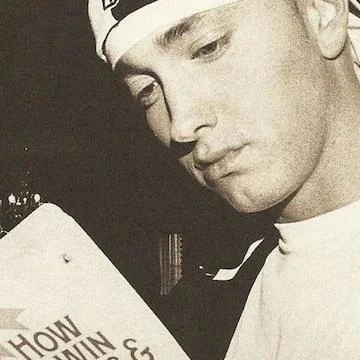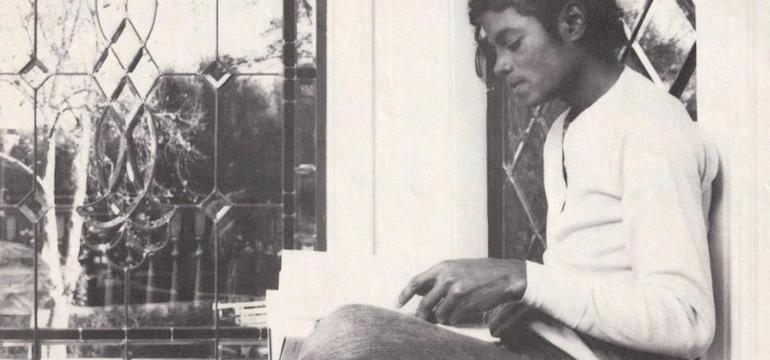Although we’d like to envision Morrissey rejoicing happily in some posh pub with his known frenemies (including every former member of The Smiths) for his birthday, it’s quite likely that this melancholic spokesperson for suffering is tucked away for the day with a good book. As a tribute to Morrissey’s 55 birthday, celebrate your own human misery by perusing the work of some of this modern day poet’s favorite writers.
Hilaire Belloc
This Anglo-French essayist and poet has cropped up in Morrissey’s work a number of times. In addition to mentioning the effect Belloc’s poetry has had on him in Autobiography, Morrissey has also referenced him in his pop culture essay entitled James Dean is Not Dead.
Germaine Greer
As a feminist in his own right, it makes sense that Morrissey would say, “I would like to eventually turn into Germaine Greer.” The Australian author’s most famous book, The Female Eunuch, is a scholarly text that explores and analyzes feminism in the 1970s.
Anne Sexton
The brooding, evocative poetry of Sexton once prompted Morrissey to remark to FILTER Magazine, “… the outside of her body had no relation to what was inside. So, for me, she was steeped in mystery and interest. And, of course, she ended her life, which is greatly dignified.”
John Betjeman
A self-described “hack,” Betjeman’s distinctly British sensibility appealed to Morrissey as a youth. As a Poet Laureate of the United Kingdom, it goes without saying that Betjeman’s poetry was of the highest caliber. Fittingly, Betjeman once noted, “Childhood is measured out by sounds and smells and sights, before the dark hour of reason grows.” This essentially describes Morrissey’s entire adolescence spent loathing authority in Manchester.
Herman Melville
Though Herman Melville is generally considered a great author because of Moby Dick, Morrissey went for a more esoteric Melville reference by naming a track on 1994’s Vauxhall and I “Billy Budd”— a novella by Melville that was published posthumously in 1924.
Kurt Vonnegut
In the classic Smiths song, “Handsome Devil,” Morrissey insists, “There’s more to life than books you know — but not much more.” This is culled from Vonnegut’s Slaughterhouse Five, in which Roland Weary asserts, “There’s more to life than what you read in books.”
Carson McCullers
Citing The Heart is a Lonely Hunter as a “big turning point” for him when he was 12 years old, Morrissey continues to prove that he’s just a big softie at heart.
Dorothy Parker
As a beleaguered student attending school in his hometown of Manchester, Morrissey took solace in reading the work of Parker. Her oft quoted “Resumé” was no doubt a comfort to Morrissey in those days of wanting to end it all.
Oscar Wilde
Obviously Morrissey’s most prized literary hero, Wilde appears on “Rubber Ring,” as subtle background vocals drone, “Everybody’s clever nowadays.” The line originally appeared in Wilde’s famed play, The Importance of Being Earnest, in which Jack Worthing states, “I am sick to death of cleverness. Everybody is clever nowadays.”
Shelagh Delaney
English playwright Delaney’s successful first play, A Taste of Honey, is what would define her career. But it was her second play that seemed to inspire Morrissey the most. The Lion in Love included the lines, “Do I owe you anything?” and “It’s time our tale were told,” among others, that have appeared in various incarnations in Smiths songs.
Nancy Friday
In addition to being the inspiration behind the name of the Sex and the City episode, “My Motherboard, My Self,” Friday’s My Mother/My Self: The Daughter’s Search for Identity served as a catalyst for Morrissey’s insight into jealousy, and the fact that it’s not necessarily a “negative” reaction to another person.
Marcel Proust
Proustian neurosis goes hand in hand with Morrissey’s own ethos. In 1988, he read a passage from Proust’s Within a Budding Grove at a musical performance by Howard Devoto’s band Luxuria.
Keith Waterhouse
As both a novelist and TV show writer, Waterhouse has just the sort of culture-savvy Morrissey can’t resist. In “William, It was Really Nothing,” Morrissey borrows a vitriolic stance toward settling down from Waterhouse’s 1959 book Billy Liar.
Charles Dickens
Another literary connection “Billy Budd” possesses is the line at the end of the song, “Don’t leave us in the dark.” This is taken from a movie adaptation of Oliver Twist, directed by David Lean in the late 1940s.
Marjorie Rosen
Again, Morrissey’s love of feminist authors triumphs. In a NME segment called “Portrait of the Artist as a Consumer,” Morrissey names Popcorn Venus: Movies, Women & the American Dream as one of his favorite books.
George Eliot
Eliot’s seminal novel, Middlemarch, features the line, “To be born the son of a Middlemarch manufacturer, and inevitable heir to nothing in particular ….” If you listen to the opening of “How Soon is Now?”, it might sound slightly familiar to you.
Antoine de Saint-Exupéry
In the video for the tear-jerking track “Suedehead,” Morrissey can be seen casually reading a copy of de Saint-Exupéry’s signature novella, The Little Prince.
Morrissey
A large majority of the aforementioned authors are discussed in Morrissey’s polarizing, legal battle-oriented autobiography, Autobiography. An instant Penguin Classic.
Clearly, Morrissey’s literary prowess is almost as time-consuming as his commitment to songwriting. Wherever that Gemini of Geminis is today, you can feel closer to him by picking up a great work from one of his preferred authors — even if that preferred author is Morrissey himself.
Genna Rivieccio graduated with a degree in screenwriting and closely identifies with Joe Gillis in Sunset Boulevard. She has written for pop culture blogs, including Culled Culture, The Toast and Behind the Hype, as well as satire for Missing a Dick and The Burning Bush.
(Image credits, from top: This Charmless Girl, John J. Burns Library, Gorgeous Cottages, Vegan Cinephile, Homiletics, Esquire, Wikipedia, Tom Reeder’s Blog, Wikipedia, Kreuzberg’d, Wikipedia, All You Need is Morrissey, Amazon, The Bully Pulpit, BBC, Wikipedia, About.me, Wikipedia, Antoine de Saint Exupery, Dangerous Minds)
KEEP READING: More on Music

![The Rip Van Winkle of Punk [NSFW]](https://images.squarespace-cdn.com/content/v1/507dba43c4aabcfd2216a447/1404137063331-A07C54MCRBO7F7AD1CC5/spike10.jpg)





 A Black Balloon Publication ©
A Black Balloon Publication ©